A waitress in a small town diner encounters a Muslim family that rekindles her connection to faith and Ramadan.
Late Afternoon At The Diner
Amina swept her gaze across the diner, reviewing her tables. Who was waiting to order, waiting for food, needing more water or coffee, waiting for the check… She took all of this in at a glance, and mentally mapped her order of operations.
Every seat in the diner was taken, with a line winding out the door. It was late evening, about a half hour before sunset. The dinner rush was on, plus there was a Baptist tent revival a few miles down the road, right out there in the baking pan of the Arizona desert, and apparently it had just gotten out because everywhere Amina looked she saw families dressed in their Sunday best, even though this was a Tuesday night. The men sported off-the-rack suits with cowboy hats, and the women wore dresses that showed a lot of skin. Crosses hung around sunburnt necks.
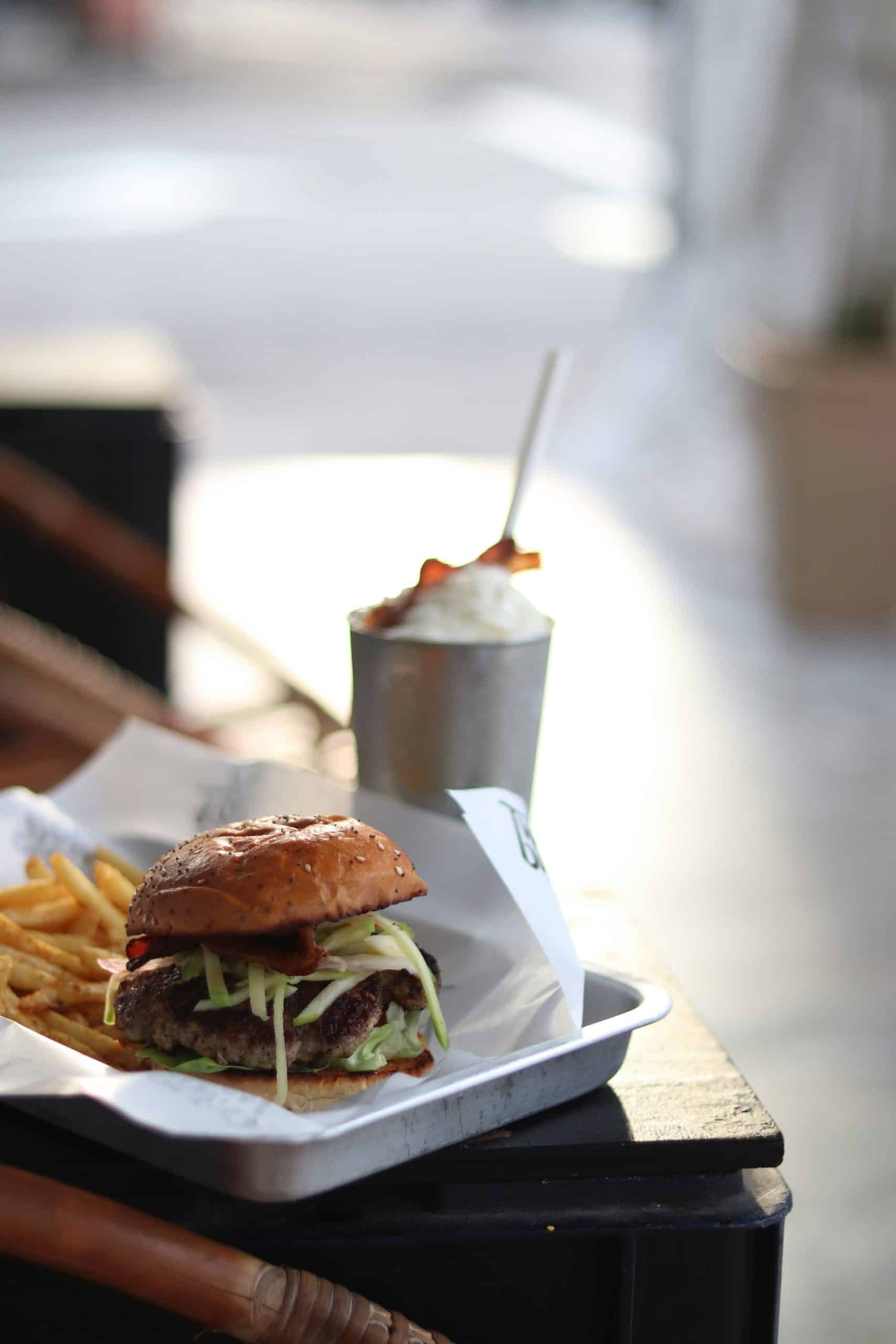 A woman eating a salad and gesturing animatedly with a fork had dropped her cloth napkin onto the floor. Cloth napkins were a vanity for a diner, but Jug, the owner, liked to call the place a “diner plus.” You could get a burger and fries, but you could also get a gourmet tuna melt with albacore and chopped artichoke hearts, or a chocolate shake with hazelnut syrup. Hey, Amina wasn’t complaining. The prices were higher than most diners, which meant her tips were higher too.
A woman eating a salad and gesturing animatedly with a fork had dropped her cloth napkin onto the floor. Cloth napkins were a vanity for a diner, but Jug, the owner, liked to call the place a “diner plus.” You could get a burger and fries, but you could also get a gourmet tuna melt with albacore and chopped artichoke hearts, or a chocolate shake with hazelnut syrup. Hey, Amina wasn’t complaining. The prices were higher than most diners, which meant her tips were higher too.
Without a pause, and without spilling a drop of water from the four glasses she carried on a tray, she bent down and picked up the napkin, took a fresh and neatly folded napkin from a pocket in her apron, and replaced it on the woman’s lap – without the woman ever knowing. It didn’t matter that it wasn’t her table. Excellence in the job was what it was all about. Seeing it all, doing it all without breaking a sweat. She was a star performer, and this was her stage.
Cover Queen
“You showin’ off, Ninja,” one of the busboys whispered to her as he passed. Some of the staff called her that, or sometimes they called her Cover Queen. Cover was restaurant lingo for each person who sat in your section. They called her that because she could handle more covers at once than any other server, and could do it with ease.
The busboy who’d called her Ninja was a young Honduran immigrant – legal, of course, as were all the staff at Jug’s. He was smart and handsome, but he’d never be a server, and thus would never make the big money. At Jug’s, as at most rural Arizona restaurants, white faces worked the front, while brown faces worked the back of the house, either cooking or washing, regardless of legal status.
Amina herself was a child of Turkish immigrants, but she was fair-skinned and blonde, and therefore was white as far as Jug was concerned. It was racist and illegal, and yes of course it bothered her. The back staff were colleagues and friends. But this was Arizona; and not the liberal Arizona of Tempe or Roosevelt Row in Phoenix, but northwestern Arizona, high desert, politically red as blood. Folks drove trucks with Confederate flags on the windows and rifles mounted on racks. Amina could complain about discrimination and be out of a job, or she could keep her mouth shut and work.
Lights Camera Action
“Seventeen up,” Jorge called through the pass. She barely heard him over the noise of the diner: people talking, silverware clattering, plates and glasses being set down and taken away, a baby crying, two children fighting over a crayon, a woman at thirteen laughing uproariously, and 50’s music piped in over the sound system.
None of it phased Amina. She’d been a server for ten years, and was good at it. In fact, she was the best. And why not? She had nothing else. Her home life was non-existent. Her father had died when she was nineteen. At that time they had lived in Patterson, New Jersey, which had a thriving Turkish community. Her mother decided they should return to Turkey, but Amina had never lived in Turkey and refused to go. So her mother went and left her behind. Amina dropped out of college and worked odd jobs until she met the son of an Arizona rancher, a college student. They fell in love, and when he graduated he took her back to Arizona. But his parents rejected her, and the boy cut her off. And here she had remained, alone, with no one who loved her except her dog Kebob, until he passed away from kidney disease.
So yeah, she might come to work sad or depressed, but once she put on the apron and clocked in, it was lights – camera – action. The outside world faded away. The stars moved above and the earth below, but her feet glided. She read her tables like a standup comic feeling the mood of the audience. This couple were on a date and it wasn’t going well, so Amina would make a few timely jokes to put them at ease. This guy wanted to be alone with his thoughts, so she kept the water filled and coffee coming and didn’t intrude. These young men were boisterous and flirty, so she treated them with a combination of firm motherliness and easy charm.
It was theater, and she was the star. She kept it real, though. She couldn’t stand servers who acted pretentious and fake. But yeah, it was theatrical. Make a witty comment and exit stage left. As long as she didn’t have to do it more than four days a week. That would be too much.
A Wager
A woman with a beehive hairdo, white teeth, and a pearl necklace waved her over. Part of a group of six – a six top, in restaurant parlance. Definitely tent revivalists. Amina had checked out one of these evangelical revivals once, out of curiosity. People clapping, shouting, and fainting. It had seemed bizarre to her, but she supposed it wasn’t any stranger than the dervishes of her parents’ Turkish homeland, spinning in circles with their heads tilted to the side. People did the most ridiculous things in the name of God.
“Darlin’,” the beehive lady said in a heavy drawl. “Is our food comin’ soon? We prayed our hearts out and we’re famished.”
“Very soon,” Amina stated confidently.
“You sure y’all got our order right? You didn’t write down a blame thing!”
It was true, Amina had taken their entire order verbally, without a notepad.
“I’ll tell you what,” Amina said. “How about a fun little wager?”
“I like the sound of that!” said the woman’s husband, a heavily tanned gentleman with tobacco-stained teeth. “What are we wagering for?”
“A twenty-five percent tip for me,” Amina said. “If your entire order comes in just like you asked. If there’s a single thing wrong, no tip.”
“Nah,” the man waved this off. “Gettin’ it right is what you’re supposed to do anyway.”
Amina nodded. “Alright, how about this. You see that long window over there?” She pointed to the pass window between the kitchen and front house. “Your table is number nine. I’ll bet you that in the next twenty seconds, a man will call through that window and say, ‘Nine up!’ And your food will be ready.”
The tanned man snapped his fingers. “It’s a deal, chica!”
The children began counting dramatically. “One Mississippi, two Mississippi…” They were on eighteen, and the tanned man was sitting back triumphantly, when Jorge called out, “Nine up!”
Amina snapped her fingers and grinned. “I’ll take card or cash, chico.” Exit stage left to the sound of laughter and applause.
An Unexpected Sight
 The hostess, Julissa, motioned to her. “Five-top in the back booth. Interesting group.” This was a reference to the number of guests seated at the table. A two-top table had two people, a four-top table had four, and so on. It was shorthand for the hostess to alert the server when a table in their section had been sat with new guests.
The hostess, Julissa, motioned to her. “Five-top in the back booth. Interesting group.” This was a reference to the number of guests seated at the table. A two-top table had two people, a four-top table had four, and so on. It was shorthand for the hostess to alert the server when a table in their section had been sat with new guests.
Amina headed to the back booth, saw who was seated there – and stumbled over her own feet, nearly falling. The family at the booth were Muslims. Out of the corner of her eye she saw one of the other servers stop to stare. Amina never stumbled. Pausing to wipe her hands on her apron, Amina frowned, then approached the table.
The family consisted of a couple and three kids. They were white people with Caucasian features, but definitely Muslim. The mother wore a hijab, and the father wore a traditional Turkish shirt with side slits and a mandarin collar, much like Amina’s own father had worn on special occasions. The father had his hands raised in silent prayer, while the mother was fingering prayer beads as she studied the menu. The eldest girl had a copy of the Quran on the table and was reciting it in a low, sing-song voice. The younger two boys wrestled over a toy car.
Glancing around, Amina saw that this family was attracting a lot of looks. And they were not friendly looks. People around here didn’t like outsiders, immigrants, or Muslims. Three strikes, this family was out, and they didn’t even seem to know they were at bat.
“Hi, can I get you something to drink to start?”
The father glanced at her nametag. “Amina,” he said. “I am Abbas. This is my wife Nura. We are fasting. We cannot eat or drink until sunset. Could we order and then you bring the food and water just before sunset? Is that possible?”
That was a new one. “With the water, certainly. As far as the food, I’ll do my best. I can make sure you at least have bread on butter on the table. Is this, umm, Ramadan?”
A Difficult Question
The mother, Nura, smiled. “Yes, that’s right. “You have a Muslim name, are you Muslim?”
“I.. uhhh…” Amina had never been asked this before. “My parents were, sort of. They were Turkish immigrants. As for me, I’m just… nothing, I guess.” Her parents had been 99% non-practicing Muslims. They may have prayed a few times at special occasions, like at funerals, but had never taught Amina to do so, and had never fasted.
Abbas smiled. “We are neighbors in a way,” the father said. “We are Kosovars. ”
“So this fast that you do,” Amina asked, mostly out of politeness but tinged with curiosity. “What’s it really all about? What’s the point?”
“Sacrifice,” Nura replied. “Nothing meaningful comes without it Whether Allah’s  Grace and Guidance, or even significant accomplishment in this world. It all comes down to sacrifice.”
Grace and Guidance, or even significant accomplishment in this world. It all comes down to sacrifice.”
Amina found herself sliding into a self-reflective stupor. This answer hit closer to home than she’d been ready for. She had often asked herself if she was mired in place in this job and in her life in general, and what it would take to get move forward. In her heart, she’d known it would take a great effort of some kind.
Interpreting Amina’s silence as a desire to hear more, Nura went on: “If I were to lose my Islam I’d lose everything. I hold on to it like a candle in the darkness. It’s a gift of truth that’s been carried down through generations of your own family, Amina. The candle may have gone out in your family’s transition to the USA, but it’s never too late for you to re-light it. Ramadan might be exactly what you need. It teaches so many lessons.”
Coming out of her fugue, Amina smiled. “I have to get to my other tables, but…” She hesitated. “Can I now give you a bit of advice? As – well – let’s say, as a fellow Muslim?”
Abbas tipped his head. “Of course.”
Amina lowered her voice. “People around her are not friendly to immigrants and Muslims. You need to be a little more discreet.”
He smiled kindly. “We’re not worried about that.”
Amina lifted her hands as if to say something, then dropped them. “Let me know if you need anything.” Then she walked away.
Dust to Dust
Checking her tables, she saw that a well-dressed young black couple had been seated at a table adjoining that of the beehive lady’s group. She went to greet the black couple, but before she could get to them, beehive lady flagged her down.
“Darlin’, could you seat them somewhere else?” Beehive gestured to the black couple.
Amina raised her eyebrows. “Why? Is there a problem?”
“No problem, we’re just not comfortable. We feel people should stick with their own kind.”
Amina was shocked, but not terribly surprised, unfortunately. Such attitudes were not uncommon in these parts. She was about to make an excuse, such as telling the woman that the restaurant was full and the African-American couple would stay where they were, when she found Abbas standing at her side.
“Madam,” the Muslim man said. “You are Christian, are you not?”
“That’s right,” the woman affirmed. “Saved by the blood. But that don’t mean that -”
“And the Lord God,” Abbas intoned, “formed man of the dust of the ground, and breathed into his nostrils the breath of life; and man became a living soul. Genesis chapter two, verse seven.”
“Amen…” Beehive said uncertainly.
“Think about that,” Abbas continued. “Dust. What you would brush from your coat -” he made a brushing motion on his chest – “or clean from your shoe. That’s what we’re made of. All of us.”
“See here now,” Beehive’s husband began, but Abbas cut him off.
“Look out there.” Abbas swept his arm toward the windows. “Desert and dust, as far as you can see. How much of that dust comes from the remains of the millions of human beings who have lived on this earth before us? Ashes to ashes, dust to dust. Yet when you look out there, do you see Caucasian dust? Native American dust? African-American dust? Do you begin to see how ridiculous it is to think that one race is superior to another? Shame on you! We all come from Adam, and Adam came from dust.”
An Uproar and a Letter
An uproar ensued. Some patrons applauded Abbas’s speech. Someone said, “Amen!” and someone else, “Hear hear!” while someone else barked, “Terrorist!” Beehive and her husband spewed a torrent of insults at Abbas and Amina. Jug intervened, and Beehive and her group were told to leave – not because they were racists, but because of the bad language. A few other guests left as well in protest, but most seemed pleased and entertained. The African-American couple shook Abbas’s hand. Throughout it, Amina found herself grinning. This was one of the cooler things she’d witnessed. Ah, the life of a server.
Abbas and his family broke their fast and ate, and Nura gave her a hug as they left. A few minutes later, Amina glanced out the window and saw the family praying in the parking lot, prostrating right on the asphalt. People gawked, but no one bothered them. When they finished they got into a slightly battered, older-model Subaru, and drove west.
At the end of the night, after closing, Amina was doing her side work – rolling silverware for tomorrow, sweeping her section, refilling salt and pepper shakers – when Julissa approached. “I almost forgot! That Muzlim family left you this.” An envelope. Amina tucked it away and started refilling the salad dressing bottles.
In her car, Amina opened the envelope. There was a hundred dollar bill, and a note. The note read:
“Sister Amina, please accept this tip for your gracious service. It was wonderful to meet such a charming and brilliant woman. There is much more to you than meets the eye. Please remember: Never give up on Allah, for He will not give up on you. He created you with love and deliberate intention. You have a glorious purpose in this world. And if there is anything you find lacking, any deep question you have, any persistent sadness or pain, remember that this is Ramadan, a holy month. Open yourself to Allah and ask.”
It was signed, “Nura Obeidullah.” After the signature, there was a postscript with a phone number and the words, “Call me anytime.”
Amina read the letter over twice. The hundred dollars was an incredibly generous gesture, especially since the Muslim family had not seemed wealthy. Her hands shook slightly as she put the letter away, though she wasn’t sure why.
More Than Meets the Eye
At home, she opened the door and paused. Coming home was always a disconcerting and slightly sad moment. Her beloved dog, Kebob, had passed away a month ago. For years he had run to her when she opened the door. Now, nothing greeted her but the hum of the refrigerator.
She looked around. There, by the kitchen counter, was where she had kept Kebob’s food and water bowls. Over there, on the sofa, had been his dog bed. There, on a hook by the door, his leash had hung. Amina had removed all of these things after his passing, thinking it would be easier not to have reminders. But actually it was worse.
Dust to dust, Abbas had said. At the time she had found those words inspiring, but now they stirred forlorn echoes inside her. She kicked off her shoes, sat on the sofa, and read Nura’s letter again. “Never give up on Allah… any persistent sadness or pain… this is Ramadan…”
Amina had never given much thought to religion. But that Muslim family had been so courageous. Never give up on Allah, she thought. Had she given up? Not only on God, but on everything? She was so proud of her ability to read her tables, and memorize orders. She was the Cover Queen. But what was that, really, in the end? What was she achieving? There is much more to you than meets the eye, the letter had said. Could she be more? Could she do more?
I Think I Am
The next day Amina outdid herself by taking an order on a seven top, including appetizers, meals, drinks, and all, and memorizing it. A while later, during a lull, Julissa motioned to her. They often took their breaks together. Amina nodded, and a few minutes later the two of them were seated on plastic chairs out back, with a sweeping view of the desert before them.
Julissa took out a BLT that Jorge had made her, a bottle of Evian, and a vape. “Aren’t you eating?” she asked.
“I’m, uhh.. I’m fasting, actually.” This was a decision that Amina had made last night, after reading over the letter several times. She had a feeling about the family from yesterday, that they had been sent to her for a reason. She didn’t imagine that fasting would magically solve her problems, but if it was true that Ramadan was a sacred and blessed month, then maybe this could be a new beginning for her. Nura had written that there was much more to Amina than met the eye. Maybe she could discover what that was.
“What? Why?”
“For Ramadan. It’s a holy month.”
“Isn’t that a Muzlim thing?”
Amina nodded. “Mm-hm.”
“Wait. You’re Muzlim?”
“I’m not sure. But I think I am.”
“Oh. Well, that’s cool.” Julissa took a hit off the vape and offered it to Amina.
“I can’t do that, either.”
“Seriously?”
Amina shrugged. “They say nothing good comes without sacrifice.”
“Well, you know what.” Julissa put away the vape and packed up the sandwich. “I’m fasting too, then.”
Amina laughed. “You don’t have to do that.”
“I want to support you.”
Amina rubbed Julissa’s back. “Okay. Thanks.”
Coyote
Julissa went back inside, but Amina remained, looking out over the desert. It was hot outside, but there were scattered clouds in the sky. The clouds moved quickly, and their shadows sailed across the desert floor like battleships speeding to war. There was no hint of rain, but in the desert it could come as quickly as death.
She thought about the Muslim family. Where were they going? They’d headed west on the road. Out to California? Maybe she too should go to Los Angeles, or San Francisco. See the Golden Gate Bridge and the Pacific Ocean.
 In the distance, amid the tall saguaro cacti, Amina saw a coyote. She placed her fingers in her mouth and whistled, for no particular reason, and the coyote stopped and turned to regard her, ears alert. Its image wavered in the heat. With its reddish coat, it was nearly invisible.
In the distance, amid the tall saguaro cacti, Amina saw a coyote. She placed her fingers in her mouth and whistled, for no particular reason, and the coyote stopped and turned to regard her, ears alert. Its image wavered in the heat. With its reddish coat, it was nearly invisible.
Amina envied the coyote. Its reality was fundamental. Find food, water, shelter. Life was distilled to its most basic components. No worries about who to love or where to live. Was it possible the coyote had a religion? If so, then she imagined it must be a pure belief in Allah, without a shred of doubt.
She snorted at her own foolishness. She was a waitress, not a philosopher. But if what she’d seen from the Muslim family was representative of Islam, then that was something she could stand with. She thought of Abbas speaking up for truth in a crowded room full of people who regarded him with suspicion. And Nura’s inspiring letter. These were the actions of good people. Oh Allah, she thought. I ask you for guidance. Nothing more.
Julissa stuck her head out the door. “You got four-tops on nine and ten. Jug says to tell the Cover Queen to get her royal self in gear.”
Amina stood, and entered stage right. Lights, camera, action.
THE END
Reader comments and constructive criticism are important to me, so please comment!
See the Story Index for Wael Abdelgawad’s other stories on this website.

Wael Abdelgawad’s novels – including Pieces of a Dream, The Repeaters and Zaid Karim Private Investigator – are available in ebook and print form on his author page at Amazon.com.
Related:
A Wish And A Cosmic Bird: A Play
Uber Tales #8 – The Ramadan (In Colombia) Edition
The post Cover Queen: A Ramadan Short Story appeared first on MuslimMatters.org.

 A woman eating a salad and gesturing animatedly with a fork had dropped her cloth napkin onto the floor. Cloth napkins were a vanity for a diner, but Jug, the owner, liked to call the place a “diner plus.” You could get a burger and fries, but you could also get a gourmet tuna melt with albacore and chopped artichoke hearts, or a chocolate shake with hazelnut syrup. Hey, Amina wasn’t complaining. The prices were higher than most diners, which meant her tips were higher too.
A woman eating a salad and gesturing animatedly with a fork had dropped her cloth napkin onto the floor. Cloth napkins were a vanity for a diner, but Jug, the owner, liked to call the place a “diner plus.” You could get a burger and fries, but you could also get a gourmet tuna melt with albacore and chopped artichoke hearts, or a chocolate shake with hazelnut syrup. Hey, Amina wasn’t complaining. The prices were higher than most diners, which meant her tips were higher too. The hostess, Julissa, motioned to her. “Five-top in the back booth. Interesting group.” This was a reference to the number of guests seated at the table. A two-top table had two people, a four-top table had four, and so on. It was shorthand for the hostess to alert the server when a table in their section had been sat with new guests.
The hostess, Julissa, motioned to her. “Five-top in the back booth. Interesting group.” This was a reference to the number of guests seated at the table. A two-top table had two people, a four-top table had four, and so on. It was shorthand for the hostess to alert the server when a table in their section had been sat with new guests. Grace and Guidance, or even significant accomplishment in this world. It all comes down to sacrifice.”
Grace and Guidance, or even significant accomplishment in this world. It all comes down to sacrifice.”
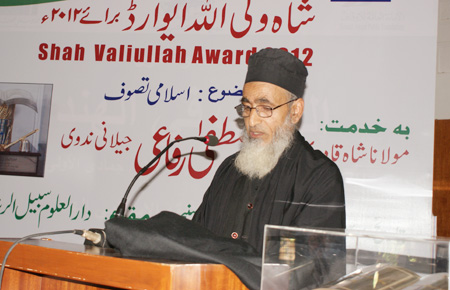
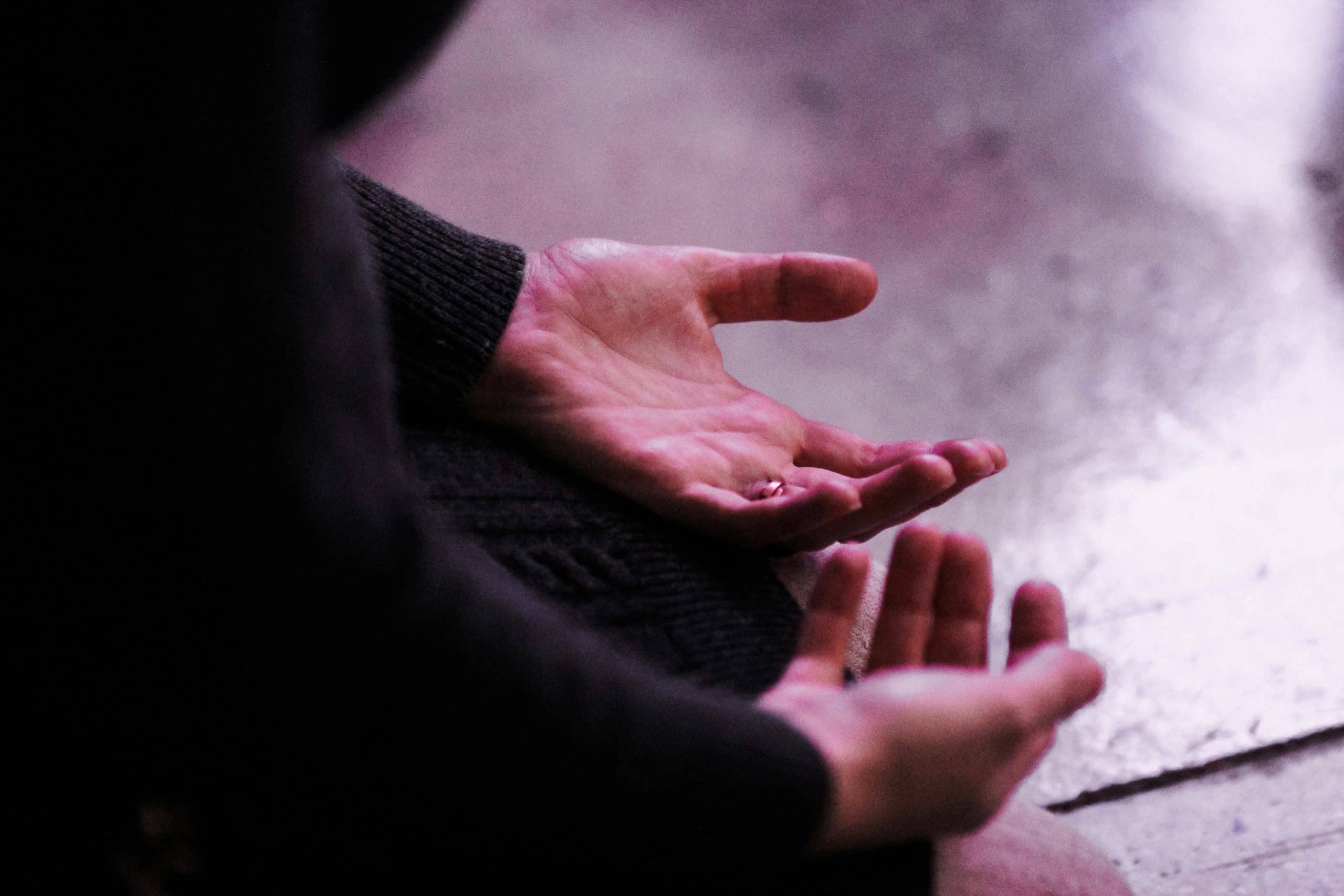
 , the Companions, and the Revivers (Mujadidin) in the centuries after Prophethood. What made this prayer spiritually irresistible at night is deeply experiential. Even the full extent of the reward is a mystery. We know that habitual worship for Allah’s
, the Companions, and the Revivers (Mujadidin) in the centuries after Prophethood. What made this prayer spiritually irresistible at night is deeply experiential. Even the full extent of the reward is a mystery. We know that habitual worship for Allah’s 

 story where Allah
story where Allah 

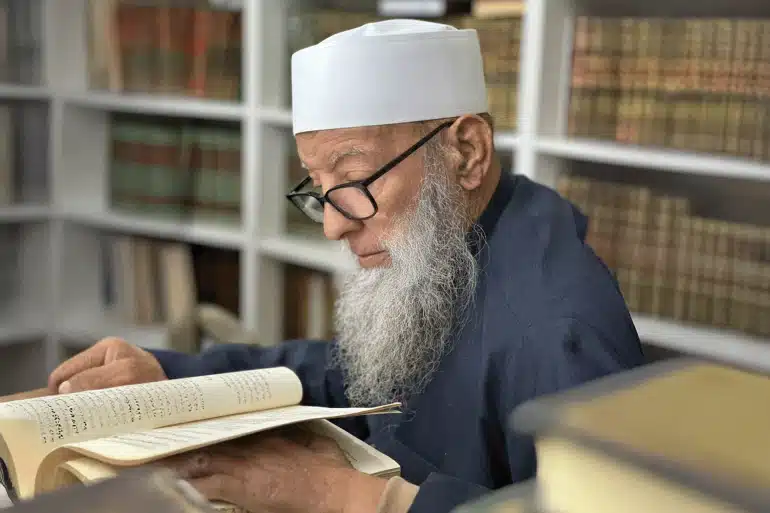
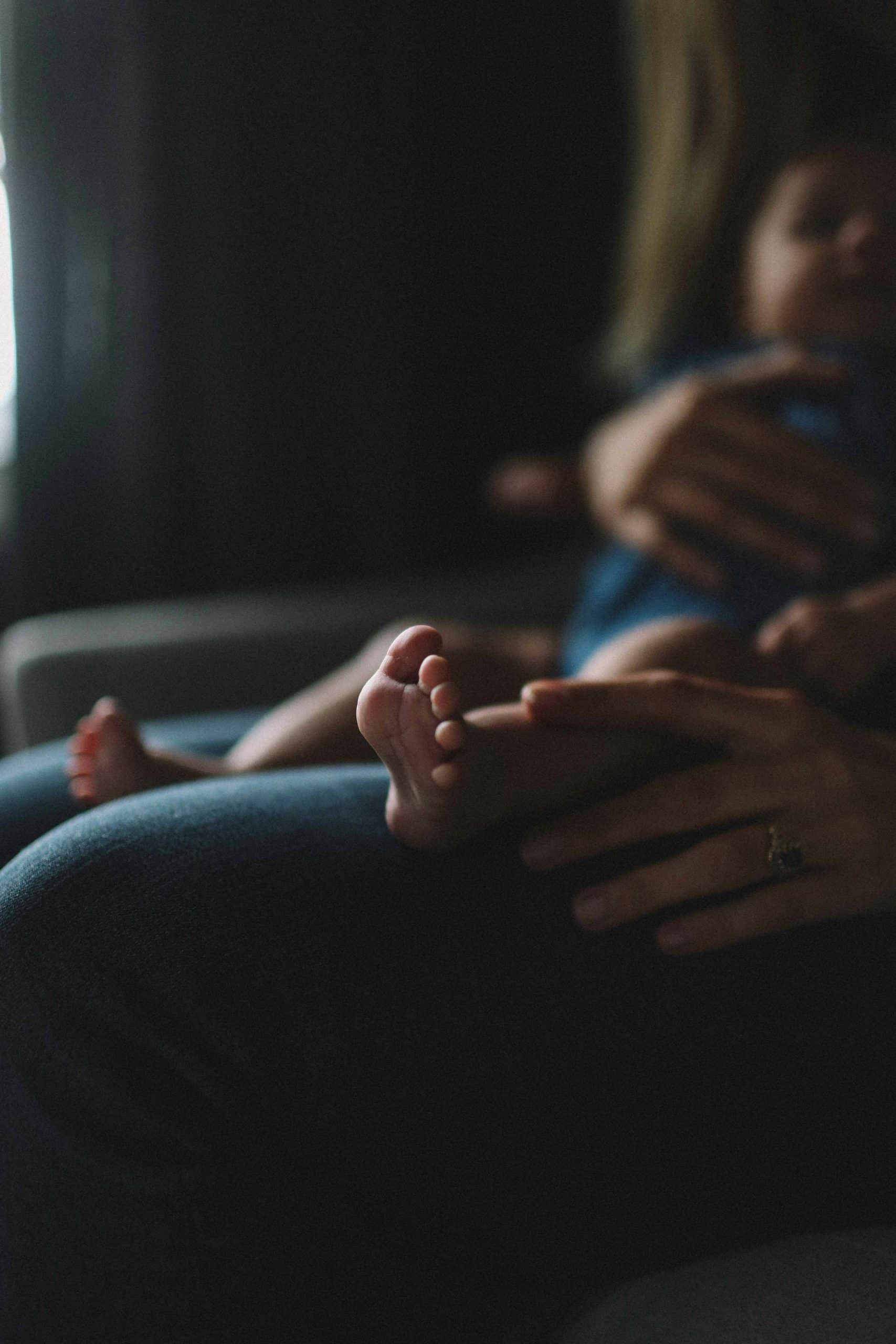 I realized that I’m getting a pretty sweet deal if I play the game right this Ramadan, and instead of fighting it or begrudgingly accepting it as I’ve done for the past six years I’ve been a mom, I’m embracing it for the first time with positivity and optimism. This to me is the game changer this year that I’m hoping will make my Ramadan feel sacred and special because I’m a SAHM, and not in spite of it.
I realized that I’m getting a pretty sweet deal if I play the game right this Ramadan, and instead of fighting it or begrudgingly accepting it as I’ve done for the past six years I’ve been a mom, I’m embracing it for the first time with positivity and optimism. This to me is the game changer this year that I’m hoping will make my Ramadan feel sacred and special because I’m a SAHM, and not in spite of it.